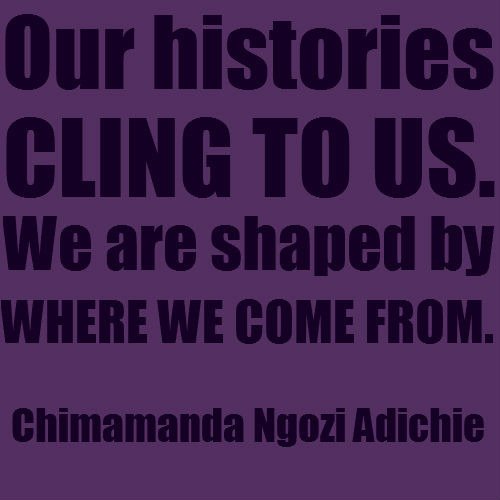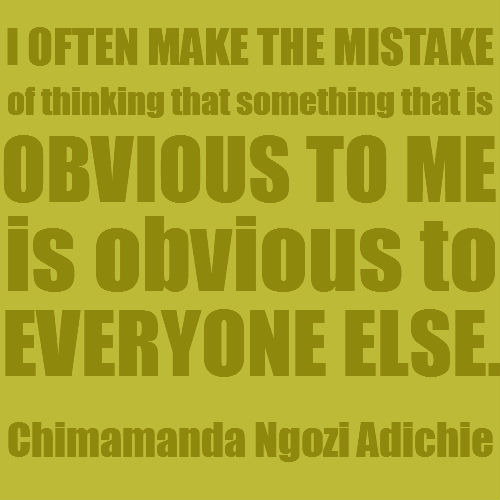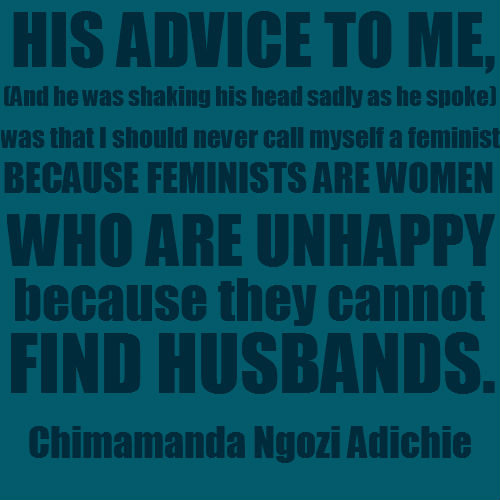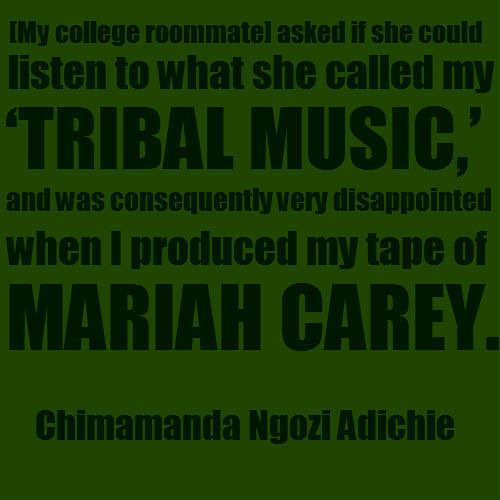lo-fem: darlingmaxi: nnekbone: Chimamanda Ngozi Adichie quotables... (via www.buzzfeed.com) ✌️ Love
lo-fem:darlingmaxi:nnekbone:Chimamanda Ngozi Adichie quotables...(via www.buzzfeed.com)✌️Love her![A series of quotes from author Chimamanda Ngozi Adichie on colored squares with certain words enlarged for emphasis.1. Power is the ability not just to tell the story of another person, but to make it the definitive story of that person.2. Show a people as one thing, only one thing,over and over again, and that is what they become.3. Our histories cling to us. We are shaped by where we come from.4. A student told me it was such a shame the Nigerian men were physical abusers like the father character in my novel. I told him that I had recently read a novel called American Psycho and that it was a shame that young americans were serial murderers.5. I often make the mistake of thinking that something that is obvious to me is obvious to everyone else.6. His advice to me (and he was shaking his head sadly as he spoke) was that I should never call myself a feminist because feminists are women who are unhappy because they cannot find husbands.7. At some point I was a Happy African Feminist who does not hate men. And who likes lip gloss and wears high heels for herself and not for men.8. About 52% of the world’s population are women. But most of the positions of power and prestige are occupied by men. The late Kenyan Nobel Peace Laureate Wangari Maathai put it simply and well when she said, “The higher you go, the fewer women there are.”9. Because of writers like Chinua Achebe and Camara Laye…I realized that people like me, girls with skin the color of chocolate, who’s kinky hair could not form ponytails, could also exist in literature.10. My college roommate asked if she could listen to what she called my ‘tribal music,’ and was very disappointed when I produced my tape of Mariah Carey.]The one about Nigerian men being abusers is especially ironic because, if you read Purple Hibiscus, the protagonist’s father is literally the most “westernized” character in the book. As I read the character, I think he is presented as 100% a product of colonialism. He is a “good” colonized subject, fervently christian and against anything associated with Igbo traditions and religion, and he enforces his ideals onto his family with physical abuse. The patriarchal values he embodies are not Nigerian but British. That student missed the point like whoa. -- source link
Tumblr Blog : behavingwhileblack.tumblr.com
#feminist









